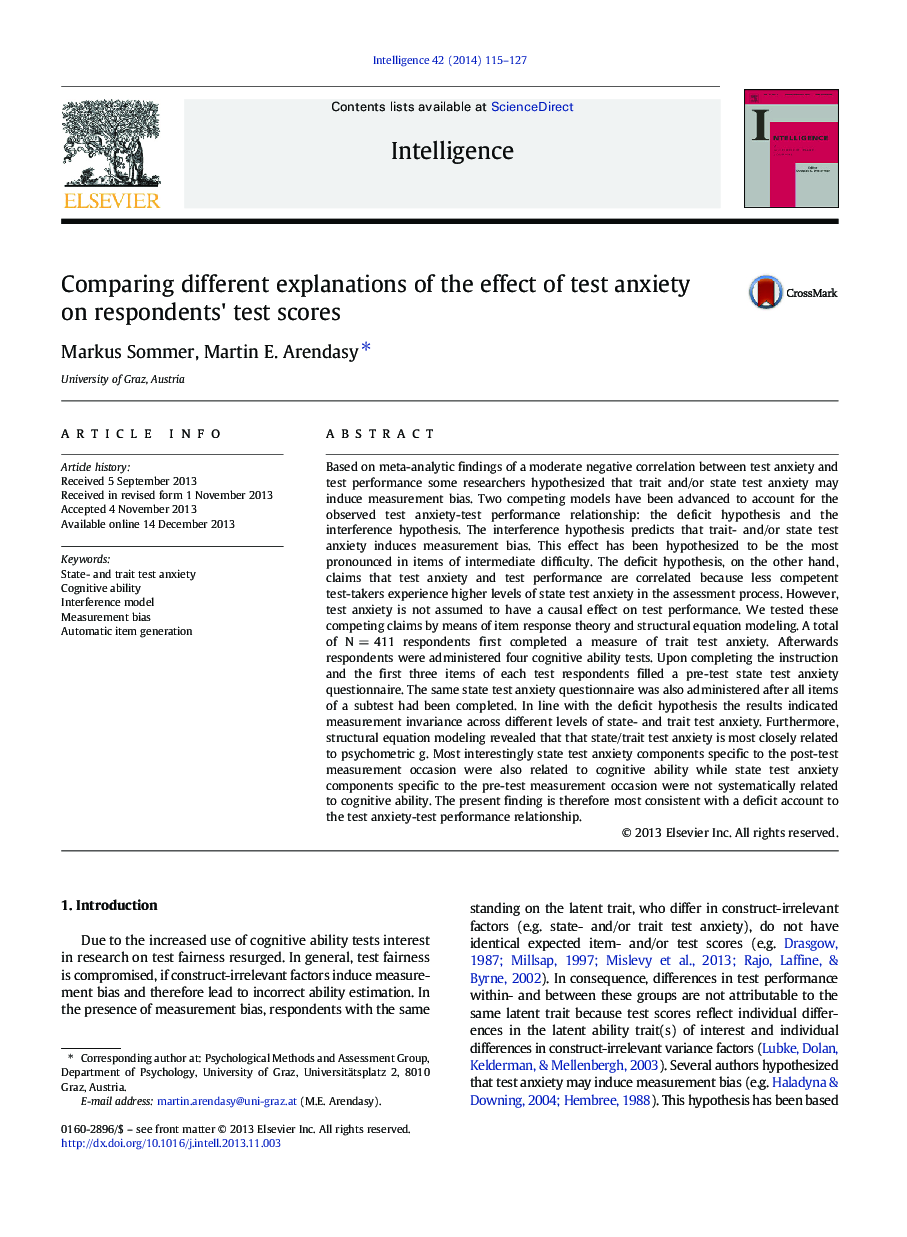| کد مقاله | کد نشریه | سال انتشار | مقاله انگلیسی | نسخه تمام متن |
|---|---|---|---|---|
| 7294713 | 1474274 | 2014 | 13 صفحه PDF | دانلود رایگان |
عنوان انگلیسی مقاله ISI
Comparing different explanations of the effect of test anxiety on respondents' test scores
ترجمه فارسی عنوان
مقایسه توصیفات مختلف تأثیر اضطراب امتحان بر نمرات آزمون پاسخ دهندگان
دانلود مقاله + سفارش ترجمه
دانلود مقاله ISI انگلیسی
رایگان برای ایرانیان
کلمات کلیدی
اضطراب امتحان حالت و عادت، توانایی شناختی، مدل تداخل، تعصب اندازه گیری، تولید اتوماتیک،
موضوعات مرتبط
علوم انسانی و اجتماعی
روانشناسی
روانشناسی تجربی و شناختی
چکیده انگلیسی
Based on meta-analytic findings of a moderate negative correlation between test anxiety and test performance some researchers hypothesized that trait and/or state test anxiety may induce measurement bias. Two competing models have been advanced to account for the observed test anxiety-test performance relationship: the deficit hypothesis and the interference hypothesis. The interference hypothesis predicts that trait- and/or state test anxiety induces measurement bias. This effect has been hypothesized to be the most pronounced in items of intermediate difficulty. The deficit hypothesis, on the other hand, claims that test anxiety and test performance are correlated because less competent test-takers experience higher levels of state test anxiety in the assessment process. However, test anxiety is not assumed to have a causal effect on test performance. We tested these competing claims by means of item response theory and structural equation modeling. A total of NÂ =Â 411 respondents first completed a measure of trait test anxiety. Afterwards respondents were administered four cognitive ability tests. Upon completing the instruction and the first three items of each test respondents filled a pre-test state test anxiety questionnaire. The same state test anxiety questionnaire was also administered after all items of a subtest had been completed. In line with the deficit hypothesis the results indicated measurement invariance across different levels of state- and trait test anxiety. Furthermore, structural equation modeling revealed that that state/trait test anxiety is most closely related to psychometric g. Most interestingly state test anxiety components specific to the post-test measurement occasion were also related to cognitive ability while state test anxiety components specific to the pre-test measurement occasion were not systematically related to cognitive ability. The present finding is therefore most consistent with a deficit account to the test anxiety-test performance relationship.
ناشر
Database: Elsevier - ScienceDirect (ساینس دایرکت)
Journal: Intelligence - Volume 42, JanuaryâFebruary 2014, Pages 115-127
Journal: Intelligence - Volume 42, JanuaryâFebruary 2014, Pages 115-127
نویسندگان
Markus Sommer, Martin E. Arendasy,
